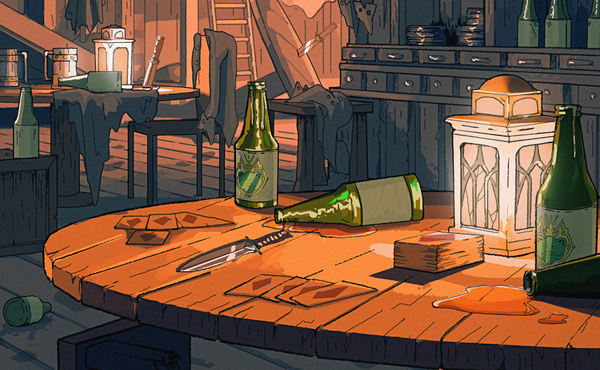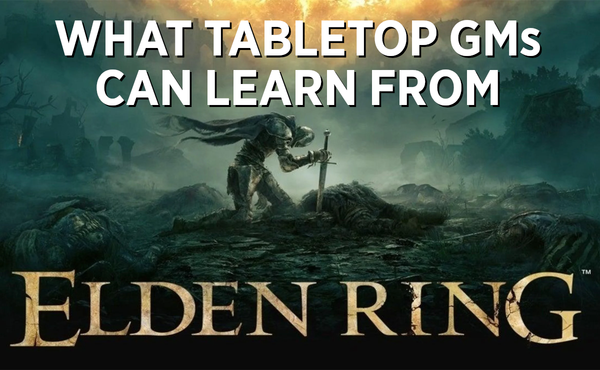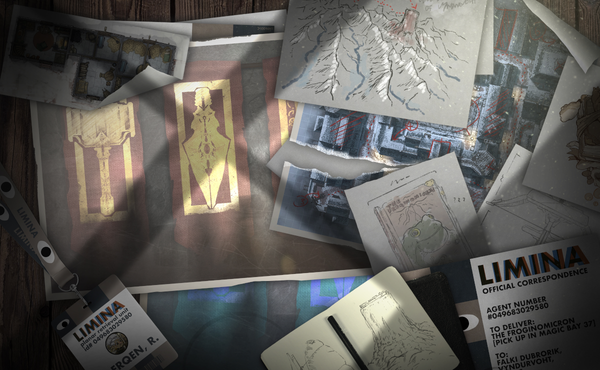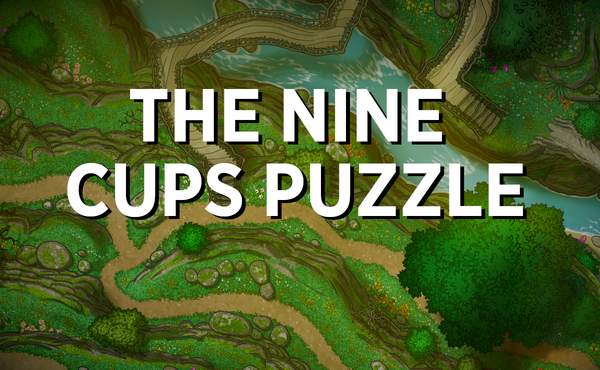Score Your Tabletop Sessions with the RPG Music Matrix
Don't think of tabletop music in terms of genre, but instead setting, intensity, and mood
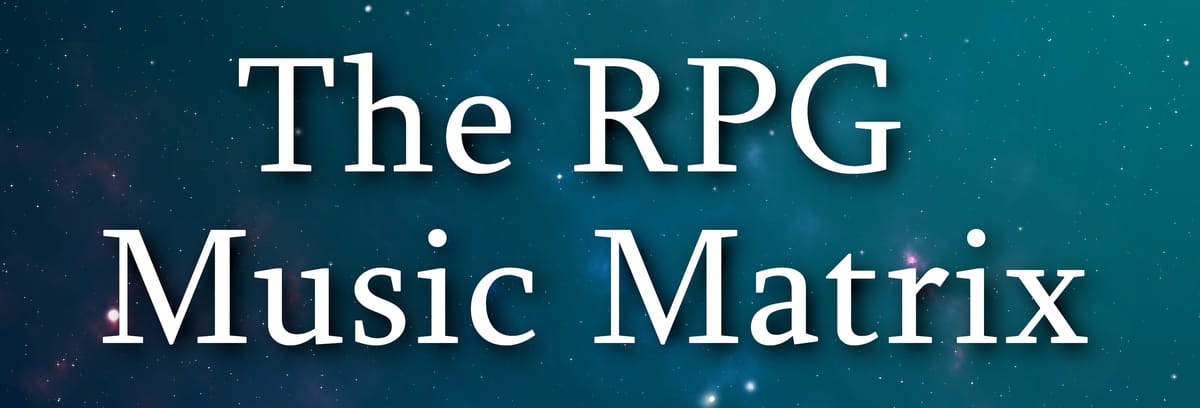
How do you categorize music? The most common way is by genre: rock, rap, jazz, etc. Maybe you get more granular in your classifications: indie rock, mumble rap, modal jazz, and so forth. When discussing artists and albums, these words can be useful for sorting work into buckets. If you tell a friend that you like "modern pop country," they'll know exactly what you mean and then probably stop hanging out with you. That said, I find that these classifications are insufficient when thinking about the music I write for use in tabletop gaming.
What genre of music do you use to score your tabletop games? Maybe fantasy? Maybe ambient? Maybe medieval (inaccurately named or otherwise)? I don’t think any of these words properly capture what’s important about a piece of TTRPG music. Two pieces of “fantasy” music can sound completely different; simply labeling a piece “fantasy” does not tell you anything about its function.
There is a better way to classify tabletop music. I use this method as I brainstorm new music to write, ensuring that my catalog of RPG music includes tunes for every possible TTRPG scenario. More importantly, you can use this method to choose the right music to score any given encounter. In this post, I’ll describe the RPG Music Matrix and how you might employ it to enhance your tabletop campaigns.
Throughout this post, I link to various tracks I've recorded for Music d20 and Borough Bound. If you're interested in tabletop music, please consider checking out these projects. At time of writing, I've released over 550 tracks. I truly believe you can score an entire campaign with my library. Thank you!
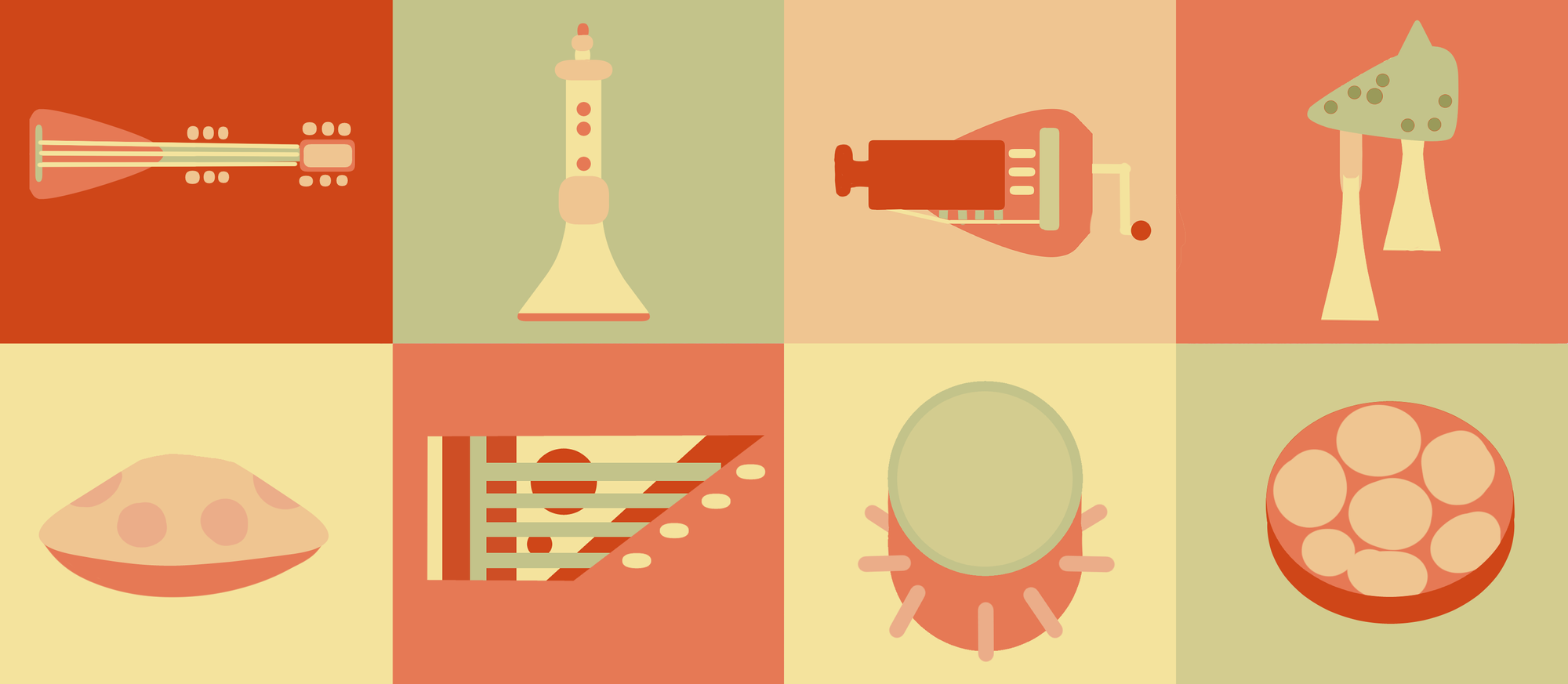
Defining the Matrix
Instead of using a single word to define a piece of RPG music, we’ll instead consider a piece of tabletop music on three axes:
- Setting
- Intensity
- Mood
You’ll notice that we’ve swapped the catch-all term “genre”—which often relies on words that are specific to music—for designations that can apply equally to tabletop scenarios. That is: any scene or encounter in a TTRPG campaign can also be clarified in terms of setting, intensity, and mood. Once we’ve aligned how we think about both music and roleplaying scenarios, composers can more easily create music to account for any scenario, and GMs can more easily select music for those scenarios.
Setting
Setting encompasses not just the specific location in which a scene occurs (a city, a forest, etc) but also what sort of world that scene belongs to. That is: a city in a medieval fantasy world is necessarily a different variety of setting than a city in a pirate campaign or a cyberpunk adventure.
In most instances, determining the setting of an encounter or piece of music is easy. Combine the overarching genre of the world, adventure, or RPG system with the specific location in which an encounter occurs. For example: a low-fantasy forest, a wild west wasteland, or a noir alleyway. While these are obviously places that an encounter can occur, I think a good piece of TTRPG music also embodies setting in this way; that is, all good tabletop music evokes a particular type of locale.
A city sounds different than a forest, a forest sounds different than a dungeon, a dungeon sounds different than a bandit camp. Even within a broader campaign setting, these individual locations may require unique musical language. In most instances, I think these distinctions are fairly intuitive even for GMs who aren’t trained in music. Cities are livelier than forests, forests (even evil forests) are more serene than dungeons, dungeons are more mysterious than bandit camps. We’re wading into issues of intensity and mood now as well, but that’s because the three axes of the matrix tend to be correlated.
Intensity
Defining intensity is much more straightforward than defining setting. Intensity is simply a linear scale. Is an encounter / piece of music completely relaxed, maximally intense, or something in between? Where on the spectrum does this encounter / track lie? Measuring intensity is simple by design.
Regardless of setting or mood, encounters can have a huge range of intensities. For example, dreary fantasy city streets can be totally quiet and calm, moderately tense and unsettling, or thrumming with violence or hot pursuit. It’s easy to fall into the trap of assuming any setting implies a certain degree of intensity, but that is not necessarily the case! Sneaking into a bandit camp sounds wildly different than dueling all of the bandits simultaneously. There are moments of rest in a dungeon, and moments of tension as the party evades traps and pitfalls. Setting your intensity correctly is hugely important; you wouldn’t want moody and ambient dungeon music scoring a life-threatening dash through booby-trapped dungeon corridors.
I usually don’t think of intensity on an actual numerical scale, but you absolutely could. A purely ambient piece of music with no crunchy dissonances or aggressive distortion would be a 0 on the scale, and frantic/epic god-slaying boss music would be a 10.
Mood
Our scale thus far is not yet comprehensive. Two pieces of low-intensity fantasy village music can still sound wildly different. The final axis of our matrix is mood, which I sometimes call “valence.” Mood clarifies how a piece comes across to your party. Is the epic combat music melodramatic or frantic? Is the tavern tune jovial or melancholy? Is the dungeon score mysterious and ambiguous or overtly ominous? In general, you should feel free to use emotions or behaviors as words to define mood, but don’t feel limited.
You might be inclined to think of mood on a 0-10 scale à la intensity. I think this is a mistake. Sure, most music exists on a spectrum from happy to sad, but the mood of a piece of music or an encounter can be so much more nuanced than that. Hell, consider all of the different versions of “happy”: ecstatic, pleased, festive, nostalgic, bittersweet, enthusiastic, optimistic. Likewise, consider moods that don’t fit so neatly into the happy-sad spectrum: mysterious, romantic, playful, relaxing, heroic, anxious. You might instinctively place these moods somewhere on the spectrum, but I think each communicates something more complex than a mere shade of good/bad.
Using the Matrix
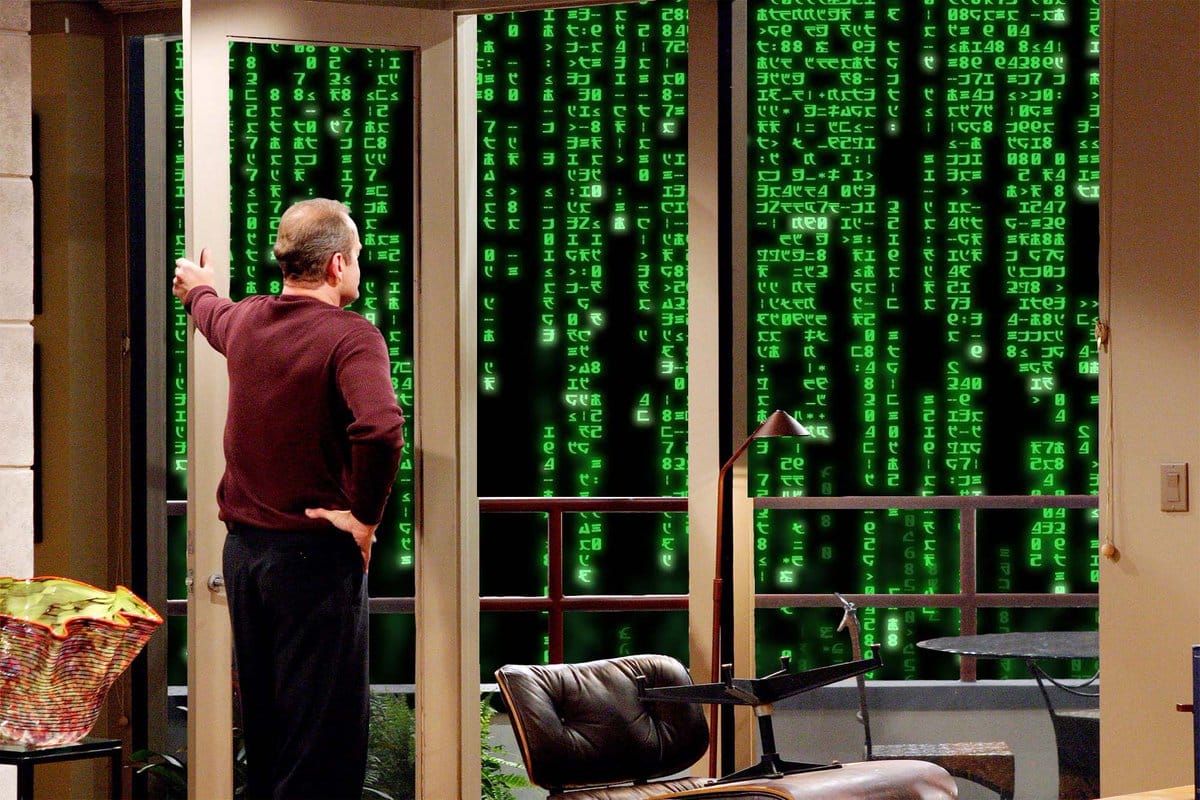
For Composers
My goal as a tabletop composer is to create music for every possible tabletop scenario. I’ve made low-intensity fantasy desert music that is moody and mysterious. I’ve made high-intensity sci-fi factory music that is threatening and crunchy. I’ve made medium intensity fantasy village music that is melancholy and curious. I try not to retread too much territory because I know how much of the infinite possibility space of scenarios still remains to be scored. Of course, when I’m writing music for Borough Bound, I often have specific scenes in mind when composing. Clarifying exactly what I want with the help of the matrix helps me to decide which instruments, harmonies, rhythms, etc. to employ.
If you’re a composer reading this, consider giving this a go! It’s a useful tool for establishing constructive constraints for your music-making. I sometimes listen to music from my peers and find myself disappointed when a piece doesn’t properly communicate anything specific. A meandering melody that does not convey any particular emotion played with generic instrumentation that implies nothing about setting is simply not as useful to a GM as a piece of music that properly establishes a mood and a sense of place.
For Gamemasters
If, on the other hand, you’re a GM looking for advice on how to use music in your games, you can use the RPG Music Matrix to help inform your choice of tracks for dedicated encounters. I’ve written previously about a method of scoring your campaigns that involves less thought and prep-work, but some GMs want greater control of the music in their games.
If you’re the type of GM who wants the perfect piece of music for every scene or encounter, you can use the matrix to help select the exact right track. Start by determining the intended setting, intensity, and mood of the scenario you want to score and then search for a track that matches. Unless you’re going for something intentionally misleading or counter-intuitive, the RPG Music Matrix gives you an easy-to-follow template for choosing appropriate music for a scene.
Obviously, this is easier said than done. How do you find music that perfectly matches? And if you’re a GM without much musical expertise, how do you triangulate a track’s setting, intensity, and mood? For that I’ll give a few pieces of advice:
- Trust your gut. If you think a piece sounds like a fantasy forest, then it does. You don’t need anyone else to confirm your intuition. Often, the GMs who are the best at scoring their campaigns have somewhat idiosyncratic tastes. Don’t be swayed by what composers or other GMs say must be true about certain music or scenarios. You don’t need any expertise to define for yourself where a track falls on the matrix.
- Learn by doing. The more you work on scoring your campaigns, the easier it will become. You’ll learn which tracks work better in which scenarios, which artists particularly match the vibe of your campaigns, and when a track is not ideal but is at least good enough. Trust me. It won’t be daunting for long.
- Use resources. The Spotify playlists I reference here are a great place to start looking. If you need low fantasy chill forest music, start by perusing DnD Calm or DnD Campfire. Alternatively, head to my master spreadsheet and browse by tags. If you’re tackling a nefarious encounter in a desert with high intensity, just look for tracks tagged
desertandcombat.
Of course, if you want a never-ending supply of new music along with tips for how to use it in your campaigns, sign up for Borough Bound on Patreon! I write up a few details about what sorts of scenarios GMs might score with each new track we release.

